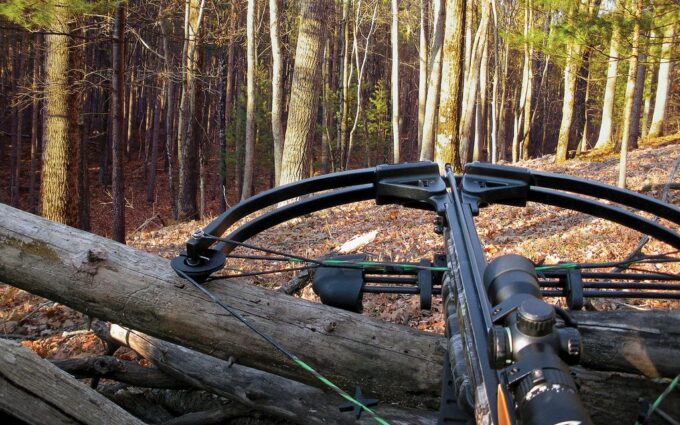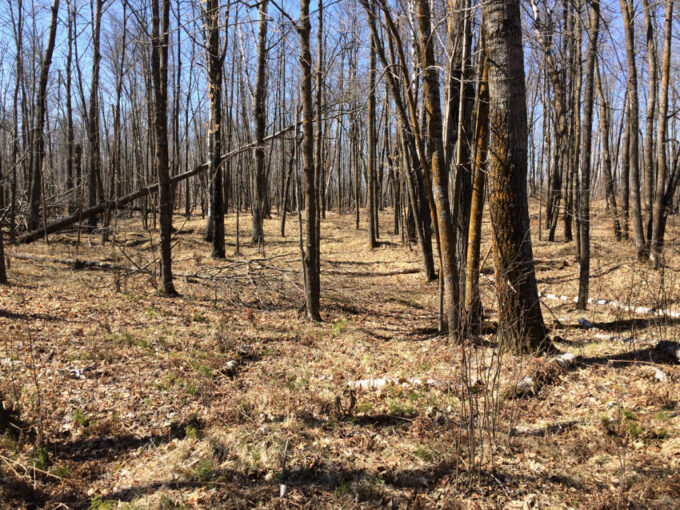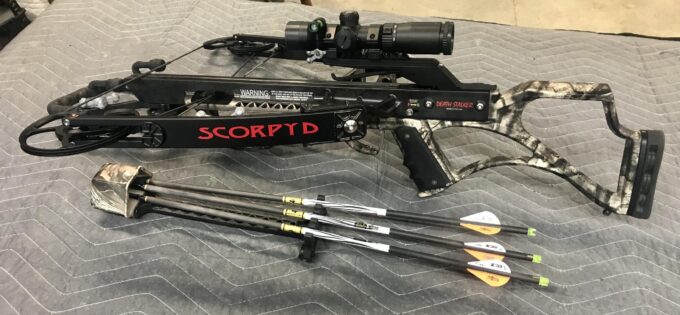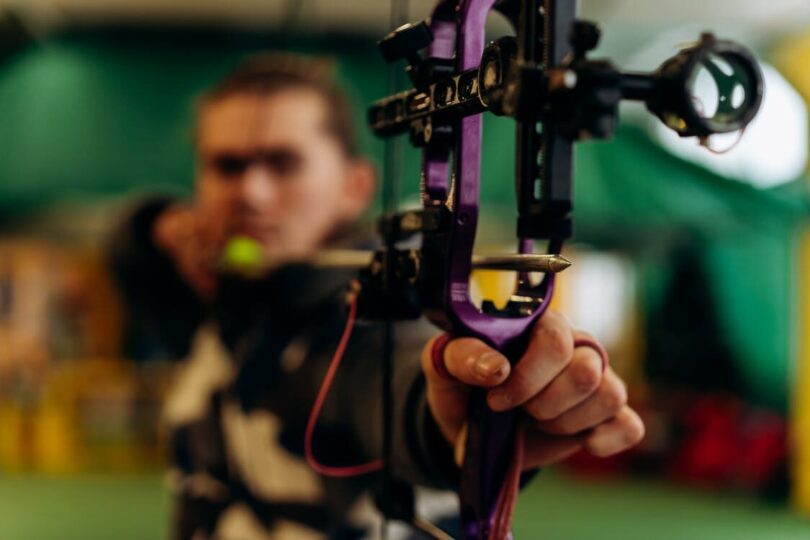Hunters have to explore the woods to catch their prey. They have to bring along a weapon that suits their style to do so. One favorite option is the crossbow, as it is relatively easy to use and offers stealth. This is no easy task. Want to learn how to wield the weapon properly? Here are some tips to improve your crossbow hunting skills.
1. Start With The Right Crossbow
As your start, the first step is choosing the right kind of crossbow. Keep in mind that it is crucial that it fits you; otherwise, you won’t enjoy using it as time goes on. There are several types, such as the compound and the recurve crossbow.
These crossbows have distinct features and are made with different materials. As a result, the weight and draw strength of the crossbow can also vary, so you should try different versions out before you decide on which one to purchase. It is important to know that the lighter and less noise it makes, the higher its price is bound to be.
Fortunately, you can come up with recent models under $1000 by looking them up on the Internet!. You can check the best crossbows for hunting at Archerytopic.com
Choosing the right one is crucial to improving your crossbow hunting skills, so make sure you do thorough research.
2. Choose the Right Type Of Ammunition
Since you will be using a crossbow, your go-to ammunition for hunting would be hunting arrows. These arrows are made with many different materials: carbon, aluminum, and composite.
Each of these arrows has a different plus point. The aluminum arrows are good for hunting, but they are not as durable as the carbon or composite-based arrows. Hence, they may be better in the hands of experienced hunters.
If this is your first trip, and you want to improve your crossbow hunting skills quickly, you can try out the more durable carbon types to experiment more with them. It is better to keep moving up the chart and reaching the level of aluminum arrows by the end as they are more reliable and accurate.
Lastly, it is also essential to see if the arrows are compatible with your crossbow of choice, so you should seek help from an expert and find out if the arrows you use are suitable for your weapon.
3. Consider the Weight, Speed & Noise

Source: tipsclear.com
You should test out the crossbows before purchasing them and heading into the wild. Usually, there are shooting ranges where you can try them out. These ranges are generally about 100 meters long, so you should test out the distance and the speed at which the arrow travels.
Next, the crossbow may be equipped with heavy limbs, propellers, cams, and some other hunting equipment in its kit that you may or may not want. So try and get one that you find comfortable using.
Another massive factor that amateurs and expert hunters must consider is the noise you produce with the crossbow. Disrupting the silence of the woods is likely to scare off your target and make the process painful and frustrating. You can try out the dampening kit, but it’s better to switch if it still doesn’t reduce the noise much.
Lastly, you should remember that many crossbows are heavy, but the recoil pattern maybe even heavier. If you are not used to the recoil, your aim and accuracy will take a severe hit. See if the recoil is easy enough to handle; otherwise, go for an option with lighter recoil.
4. Prioritize Your Safety
This is one hunting tip that you should remember at all times. You must always make sure that the arrow points in the right direction before firing. After all, how will you catch your target if you get wounded in the process?
Furthermore, you should exercise caution and abide by safety measures while going around with such a deadly weapon as accidents can occur at any time.
Wait till you have a clear line of sight before firing so that the arrow reaches the target instead of landing anywhere near you.
In addition to the safety measures, you should carry a first aid kit to take care of minor wounds or insect bites. Also, wear clothing appropriate to your hunting location to stay safe from the climate and all the dangerous things mother nature offers.
Lastly, it is essential to remember that you can’t improve your crossbow hunting skills if you get hurt and are in the hospital for a long while. Hence, knowing your limitations is a must, even if you may fail to get a good catch, as health is of the utmost priority. You should also keep a phone to call for help when it’s time to retreat.
5. Maintain a Stealthy Position

Source: bonecollector.com
For your arrows to hit the shot, you must ensure that your target is unaware of your presence. This is an essential part of hunting, regardless of whatever equipment you bring.
You can wear camouflaged clothing so that you are harder to spot. Additionally, you can use a scent-free soap that will take away all types of smells that might alert the animal you are hunting. You can also try out using smell eliminators so that you are not easily detected. Deers, for example, are common prey for hunters but are extremely sensitive to any sound or movement, so it’s best to hunt them from a distance.
The wind is the next variable you have to study to improve your crossbow hunting skills. Once you are ready to take the shot, check the direction and speed of the wind and adjust your aim accordingly. Make as little noise as possible while walking towards the wind while preparing to aim.
6. Abide by the Laws and Regulations
Every hunting ground has a set of rules and regulations that you are bound to comply with. Since guns are more common for hunting, bringing a crossbow can bring additional complications.
To avoid having to leave the ground because of restrictions on your equipment, you should first look up the rules of the camps and what type of weapons and ammunition they permit. Usually, aluminum heads and drawing specifications are allowed.
If you are still struggling to find out more about the restrictions of a hunting location, you can talk to the local hunters who are regulars in that area. If any state laws don’t block you, check the archery requirements to choose the best location where you can practice improving your crossbow hunting skills.
7. Practice & Patience Make a Great Hunter
Practice and patience are key with any activity where you strive for improvement. Without these two, you will do more damage than hunting since you will be misusing the dangerous weapon.
Without proper practice, you won’t be able to hit your shots consistently and will become frustrated with the process. It is important to note that hunting with any weapon is slow and requires you to be patient throughout.
If you are impatient, you will scare away the animals since the window of opportunity wasn’t there yet. Hence, you need to exercise patience regularly to know right when to release the arrow towards your prey.
8. Setting up

Source: archerytalk.com
Lastly, setting up your equipment is also a vital part of hunting. You should set up at an effective range from your target so that you aren’t easily detected, and your shots can still hit the mark. You should also learn to rest properly as it may take a long time for the animals to arrive. You should pack a scope and a rangefinder to know where and how far the target is.
You can set up several blinds, such as a box blind or a tree blind. An effective hunter needs to know this to adapt to the given circumstances with ease. Furthermore, make sure your bolt is seated correctly and test the broadheads so that you don’t have to return for replacements later on.
Conclusion
As we end this article, the last tip for crossbow users is never to use it for entertainment since it may cause severe harm. You should constantly take care of it if you strive to improve your crossbow hunting skills. We hope that this article has helped you become a better hunter, and we wish you good luck in catching your prey!







